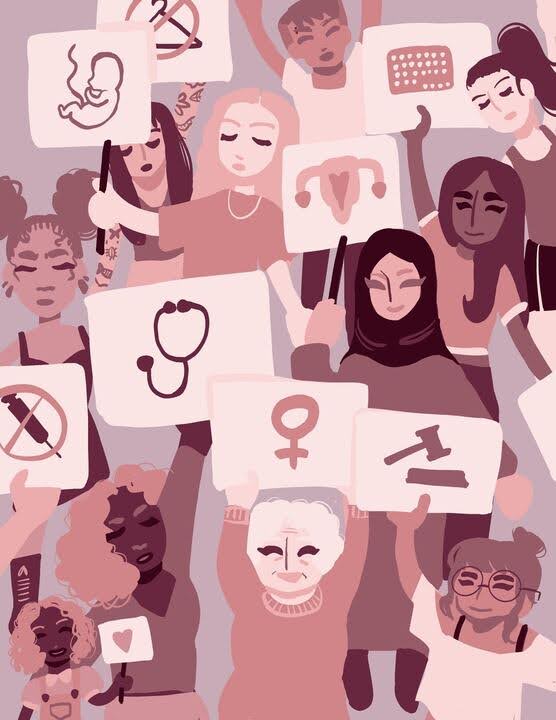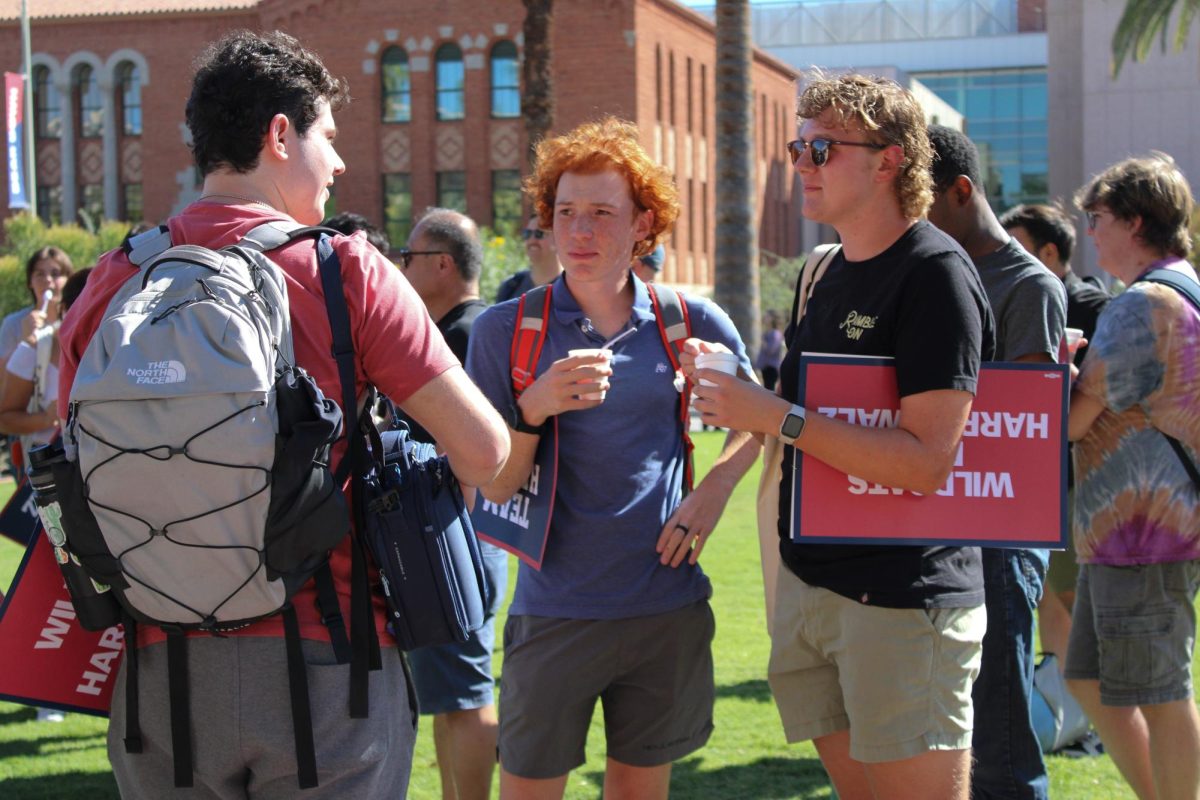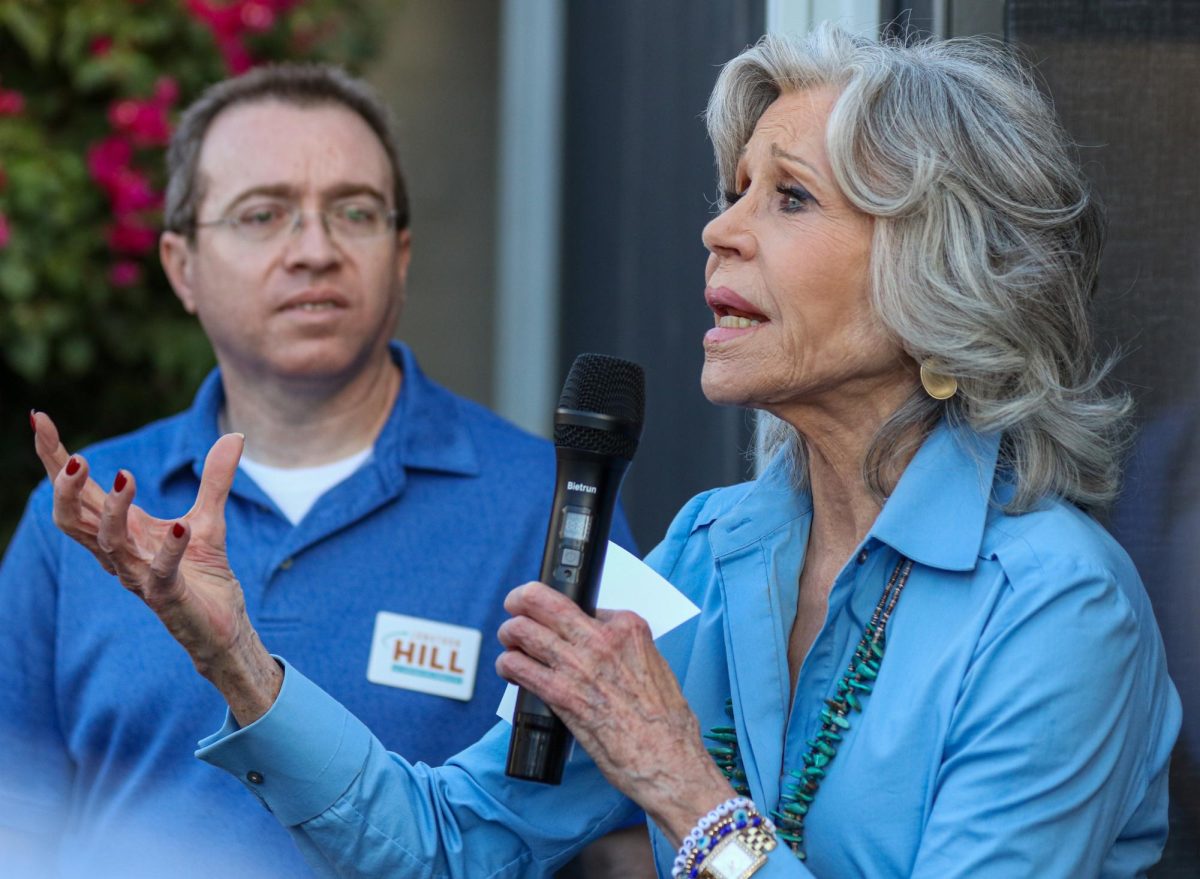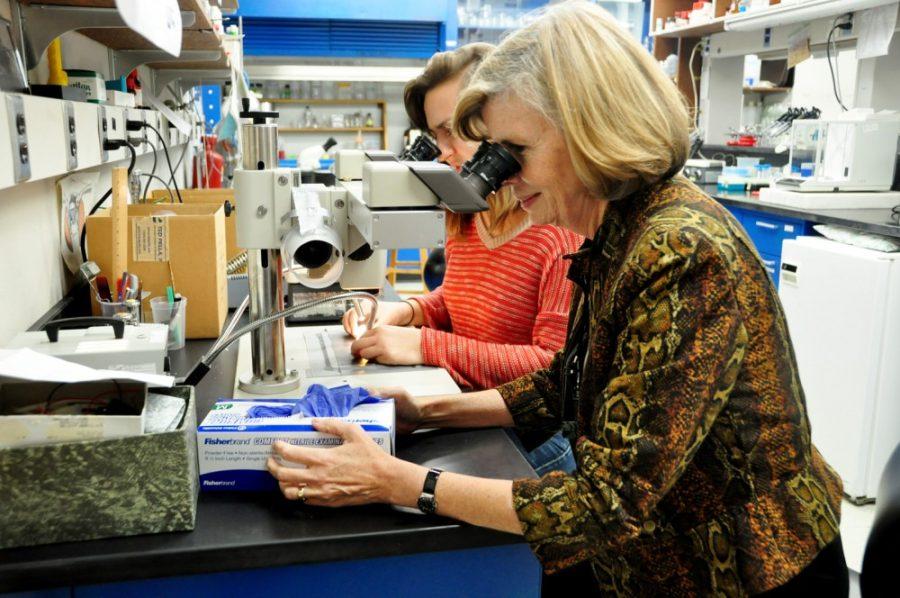For nurses of the University Medical Center trauma Intensive Care Unit, teamwork, professionalism and consoling victims’ families are all part of the job.
These characteristics are especially important when dealing with many casualties, such as the victims of the shooting on Jan. 8.
Tracy Culbert, the registered nurse in charge at UMC the day of the shooting, recalls how she and her staff went into action that morning.
“”We did get a page over the system that we were getting people in with gunshot wounds. All our nurses starting coming in and calling in to assist us … if they (the staff) weren’t physically helping a patient, they were helping those people caring for the patients,”” Culbert said.
Five patients were in the ICU that day and six extra nurses went in to help accommodate the patients.
Angelique Tadeo, a registered nurse who worked that night, explained that it was less adrenaline and more her training that kicked in when she was caring for the trauma patients.
“”We look at who needs what first and second and make sure that everybody is working together,”” she said. “”We are used to multiple traumas coming in at the same time … the difference was who it was (Rep. Gabrielle Giffords and other victims).””
Giffords’ presence in the hospital was not the only new experience for the ICU trauma nurses. Registered Nurse Aubreena Beckel said she felt the media and police presence was the “”most different.””
The staff also received food donations, massages and acupuncture in return for their hard work, according to Culbert.
“”It saved us,”” Culbert said. “”We couldn’t leave the unit to get food and take those breaks … it was very, very nice.””
There were at least 20 different specialists that saw the ICU patients, which is typical for a for something of this magnitude, according to Vicki Veronese, the patient care manager and registered nurse at the UMC Trauma ICU.
“”That is what makes our team so special,”” she said. “”I am the most proud that we got in all those patients … our staff is very professional and caring with all the patients. We were making sure those families did not have added stress, and that they were OK.””
Veronese explained that the difference between the ICU and other units in the hospital is the time they spend checking in with patients’ families.
Veronese recalls Giffords’ parents as “”lovely”” in the two weeks she spent with them and other family members.
Some of the nurses reminisced about personal interactions that they had with Giffords during her stay.
Culbert wore a necklace symbolizing the passing of her father, and told Giffords what the necklace meant to her. According to Culbert, Giffords would reach up and grab the necklace to console her.
“”I started to get tears in my eyes,”” Culbert said. “”She pulled me over to hug me and patted my back. She was trying to console me and she was the one that was hurt.””
Tadeo recalls their similar passion for the Latin pop/rock band “”Mana.”” She would bring it in for Giffords and they would listen to it together.
Beckel spent six nights with Giffords, and said she was very thankful for the opportunity to help treat the representative.
“”I am forever thankful for the bonding that was able to take place,”” she said. “”I was very proud to see her progress the way she (Giffords) did.””








